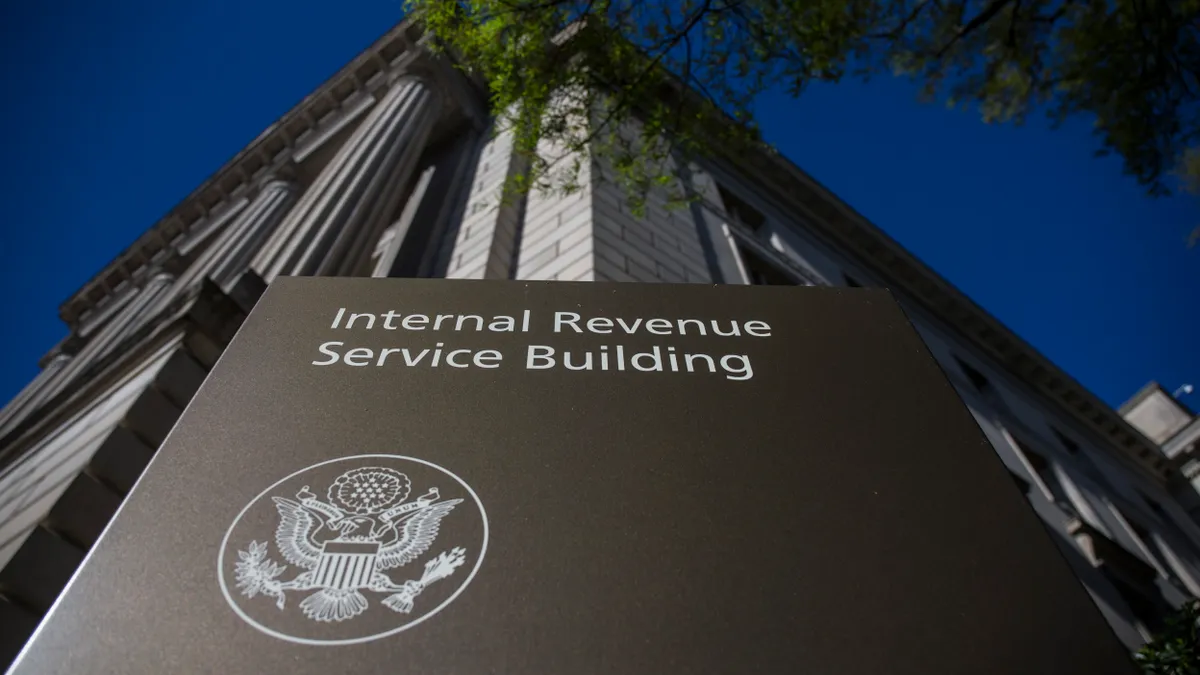Financial executives face extra complexities this tax filing season stemming from delays in the operations and processing of filings at the overloaded Internal Revenue Service that are affecting all taxpayers — business and individual taxpayers alike, according to tax and policy experts.
Businesses are “facing an IRS that is underwater right now, given the backlog of paper returns,” said Garrett Watson, a senior policy analyst at the Tax Foundation. "Not only are all these taxpayers dealing with tax filings for this season but a lot of them are waiting on correspondence or processing of various tax issues going back to 2020.”
At the close of the 2021 filing season, the IRS reported it still had more than 7 million business returns needing to be manually processed, according to the National Taxpayer Advocate's Annual Report to Congress. Because manual reviews take more time, “that is likely to prevent the IRS from digging out of that hole in the foreseeable future,” according to a report. The delays in processing Form 941, the Employer’s Quarterly Federal Tax Return, and Form 941-X, the Adjusted Employer’s Quarterly Federal Tax Return, have been “significant,” the report found.
Watson recommends that businesses not only file early but avoid paper correspondence which can add to the delays and lead to errors that also take time to correct. In addition to filing early, “get as much of it in electronically. That’s going to maximize your chance of success.”
Tax experts say they’ve been working with businesses grappling with many ripple effects from the delays and tax preparers say they struggle to reach the IRS to resolve problems even on a line dedicated to them.
Unopened mail
Jennifer Hicks, a managing director at Alvarez & Marsal who specializes in federal tax compliance, said a number of her business clients are dealing with tax notices assessing tax penalties but the process of responding and working with the IRS to resolve them has been delayed. “In most cases we’re left to assume the mail has yet to be opened because we’re just getting notices and watching interest accrue on pretty substantial penalties and companies are saying, ‘What should I do in this case? Should I pay or not pay?’”
The IRS this month took steps to provide some relief on the notices, saying that that it had suspended automated collection notices that it typically issues when additional tax is owed or when there’s no record of a filing. But Hicks said it’s not clear how long the reprieve will last.
Even responses to standard forms, such as the "Check-the-Box-Election" where firms choose how they want to be treated by the IRS — as an association or a partnership, for example — are drawn out, leaving businesses hamstrung. "In order to file the right forms, you need to know what you will file as," said Kevin M. Jacobs, a managing director and national tax office practice leader at Alvarez & Marsal.
In other cases, late refunds or credit payments to businesses that filed previously to obtain the Employee Retention Credit (ERC) are leaving some companies in a liquidity crunch, according to Larry Gray, a CPA and government relations liaison for the National Association of Tax Professionals. The ERC, under the CARES Act, gave certain employers a tax credit for keeping eligible workers on their payroll during the pandemic.
“I now owe the income tax for the credit but I don’t have the credit in my bank account,” he said.
The delays in returns themselves can be a problem for businesses that are looking for loans because it is documentation that banks typically request. “It could start to impact financing,” Gray said.














